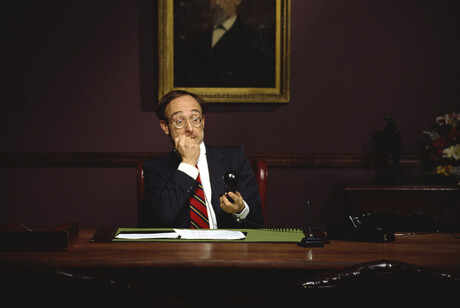I’m in that time of life where people find themselves reflecting frequently. I think about my past life of 70 years and how full— yet fast — they were. As a semi-retired pastor, I find two conflicting forces in my thinking that compose that looking back.
Number one is this: I find myself regretting real — and perhaps imagined — failures. I know what many of my sins are, including the weaknesses of my ministry. I know about my tendencies to not visit enough and not evangelize enough. I think of the “their blood I will require of you” texts. These are painful, as precious faces appear in my mind. One of my children is out of the church. Was I a good enough dad?
Number two is more positive. I want to be someone that is forgetting about what is behind in order to press forward for the prize. In other words, I want to grow in God’s wonderful grace. Fewer things seem as important to me as they did in my youth. Just knowing God more deeply seems most important now.
With these things in mind, I decided to pull off of my bookshelf something that had been gathering dust for 40 years: Ellen White’s Testimonies for Ministers and Gospel Workers.
I had received this book from a friend in my La Sierra days studying for the ministry. I read it then, before I had ever pastored, but not since.
However, recently I had the strong impression that I should brave its pages. I didn’t look forward to what I anticipated as nonstop direct exhortations about proper pastoral work. I could hear the rebukes before they came, and there was never a gray area with Ellen White. I thought it would be something like, “If you don’t give it your all 24/7 you are an unfaithful servant!” So it was with some fear and trembling that I prayerfully opened to those messages.
The book begins with an unusually long explanation that places much of the book in the historical context of the denominational crisis of the 1880s–1900s. It frankly warns not to interpret all of White’s statements apart from that context.
Sure enough, she absolutely hammers church leadership at Battle Creek with withering rebukes and forecasts of doom for those wielding “kingly power.” She wrote personal letters, of course, none of which I would have been happy to receive! But the problems were so large and spiritually serious that these warnings were from articles she wrote to the public.
There were many leaders in danger of losing their souls and those whom they influenced. That’s how serious the problems were! But thanks to these testimonies and others, as well as two devastating building fires, the results were eventually good and the church resumed her healthy mission of sharing the Three Angels' Message.
One thing to remember in interpreting these writings for ministers is that in White’s day, there were no “settled pastors” yet. Ministers were often more like traveling evangelists, having no set churches. Local elders did local work. Still, her counsels were always spot on for wider situations and I found much encouragement therein.
There were those occasional gems. Did you know that there were two times she specifically said of the Holy Spirit that He was the “Third Person of the Godhead?” Written in 1896 from Australia, she wrote on page 392, “Evil had been accumulating for centuries and could only be restrained and resisted by the mighty power of the Holy Spirit, the Third Person of the Godhead.” Have you ever heard from the anti-trinity individuals that White didn’t believe in the trinity? Obviously, not so.
The book ends on a very high note. On page 516 there is a short article entitled “The Victorious Life.” This was written from Sanitarium, California, in June 1914 — one of the last things she wrote. “Dear Friend, The Lord has given me a message for you, and not for you only, but also for other faithful souls who are troubled by doubts and fears regarding their acceptance by the Lord Jesus Christ. His word to you is, ‘Fear not: for I have redeemed thee, I have called thee by thy name. Thou art Mine.’ You desire to please the Lord, and you can do this by believing His promises. He is waiting to take you into a harbor of gracious experience.”
This last article was worth the voyage — a gracious experience indeed. So, why was I so afraid to open this book?









